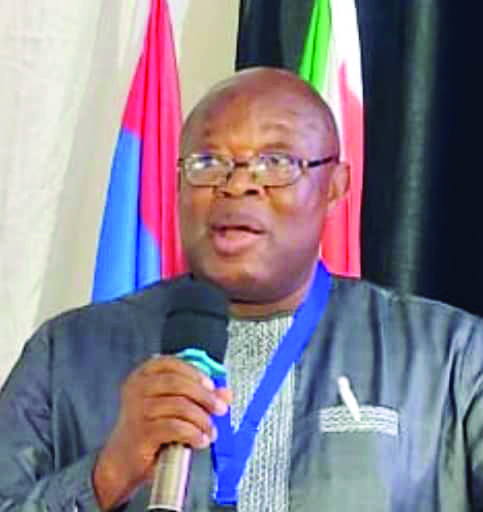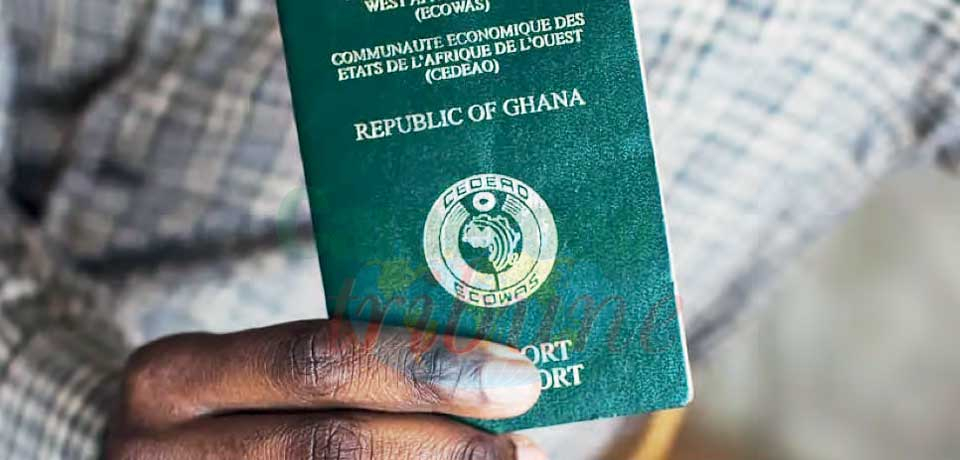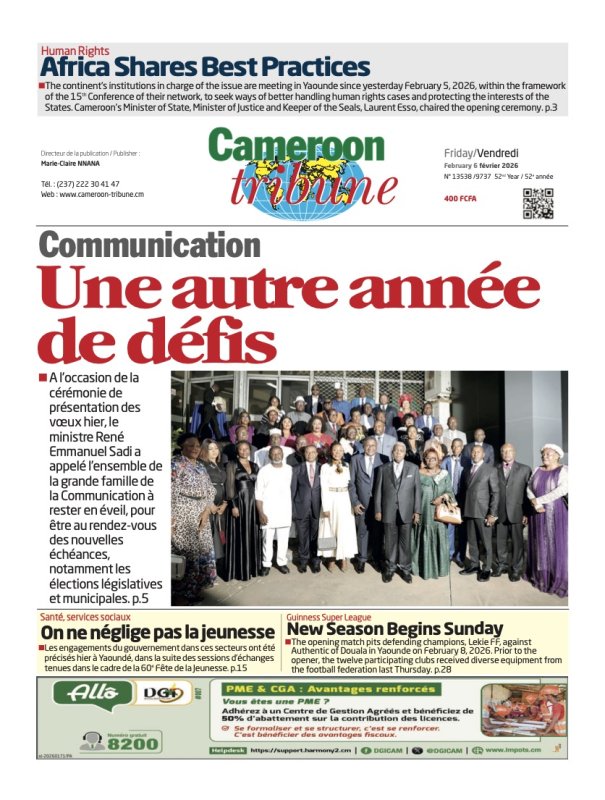“It Reflects Their Efforts To Navigate Complexities”
- Par Eldickson Agbortogo
- 06 May 2025 10:38
- 0 Likes

Francis Ngong Fultang, Peace Building and Conflict Transformation practitioner, IEP Peace Ambassador, Certified Mediator, Rotary Peace Fellow.
For some time now, several monarchies (countries) in the Gulf have been actively involved in international dialogue. What in your opinion are the reasons behind their involvement?
It is true that the Gulf monarchies, specifically the Gulf Cooperation Council (GCC) member states, are increasingly involved in international dialogue. This trend is due to several factors beginning with the Regional Security Concerns. The GCC states navigates complex relationships with neighboring countries, managing disputes, and addressing security threats. For instance, the blockade of Qatar by Saudi Arabia, the UAE, Bahrain, and Egypt highlighted the limitations of the GCC's integrative institutionalization. These monarchies are diversifying their economies, moving beyond oil dependence, and engaging internationally to attract investments, promote trade, and develop industries. The GCC has made progress in technocratic areas, standardizing regulations and fostering economic coordination. By participating in international dialogue, GCC states aim to strengthen ties with other nations, integrate into global markets, and enhance their economic resilience. The GCC's role is evolving amid changing power dynamics, with countries like Saudi Arabia and the UAE taking more assertive stances in regional politics. GCC member states are engaging in diplomatic efforts to resolve conflicts, build alliances, and promote regional stability, as seen in their interactions with other countries and international organizations.
What are some of these engagements?
Some specific examples of GCC international involvement include, GCC-EU relations. Although not explicitly mentioned, GCC states engage with global partners. Initiatives like the planned GCC railway demonstrate efforts toward economic integration. The GCC has explored joint nuclear projects, although individual member states have also pursued independent initiatives. Overall, the Gulf monarchies' increased involvement in international dialogue reflects their efforts to navigate regional complexities, promote economic growth, and ensure stability in a rapidly changing world. Petroleum monarchies, also known as oil monarchies or petro-monarchies, refer to monarchies or authoritarian regimes that derive significant revenue and power from oil or petroleum exports. Examples include, Saudi Arabia, Kuwait, Qatar and United Arab Emirates (UAE), amongst others. These countries often use oil wealth to maintain power, influence, and stability.
Is their involvement not a pretext to sell their own image on the international scene?
The Gulf monarchies' involvement in international dialogue can indeed serve multiple purposes, including the enhancing their global reputation and soft power. Promoting trade, investment, and business opportunities. Shaping regional and global agendas. Addressing shared challenges and fostering cooperation. While image building might be a factor, it's likely one aspect of a broader strategy.
What role does their economic power play in such circumstances?
The Gulf monarchies' economic power plays a significant role in their international involvement, enabling them to invest globally. Investing in various sectors, such as real estate, infrastructure, and industries, to diversify their economies and generate returns. Shaping global energy markets through their significant oil and gas reserves, and increasingly, through renewable energy investments. Using their economic weight to foster strategic partnerships, secure trade agreements, and negotiate favorable terms. Funding projects, organizations, or entities that align with their national interests, regionally or globally. Showcasing their economic achievements, cultural initiatives, and philanthropic efforts to improve their global image and influence. Their economic power also comes with challenges, such as, dependence on oil exports. Struggles to develop non-oil sectors and reduce reliance on hydrocarbon revenues. Overall, the Gulf monarchies' economic power is a key factor in their growing international influence.
But all seems to be positive…
On the other hand, petroleum monarchies can play a role in fueling conflicts through various means including resource competition. Control over oil resources can lead to tensions and...
Cet article complet est réservé aux abonnés
Déjà abonné ? Identifiez-vous >
Accédez en illimité à Cameroon Tribune Digital à partir de 26250 FCFA
Je M'abonne1 minute suffit pour vous abonner à Cameroon Tribune Digital !
- Votre numéro spécial cameroon-tribune en version numérique
- Des encarts
- Des appels d'offres exclusives
- D'avant-première (accès 24h avant la publication)
- Des éditions consultables sur tous supports (smartphone, tablettes, PC)














Commentaires